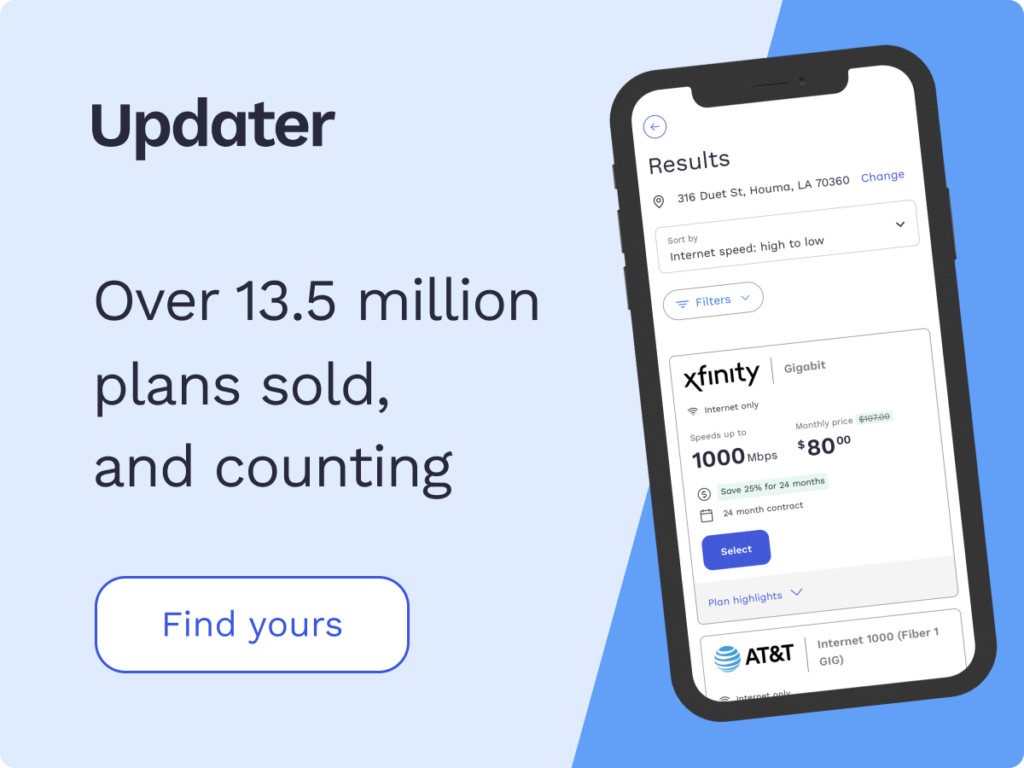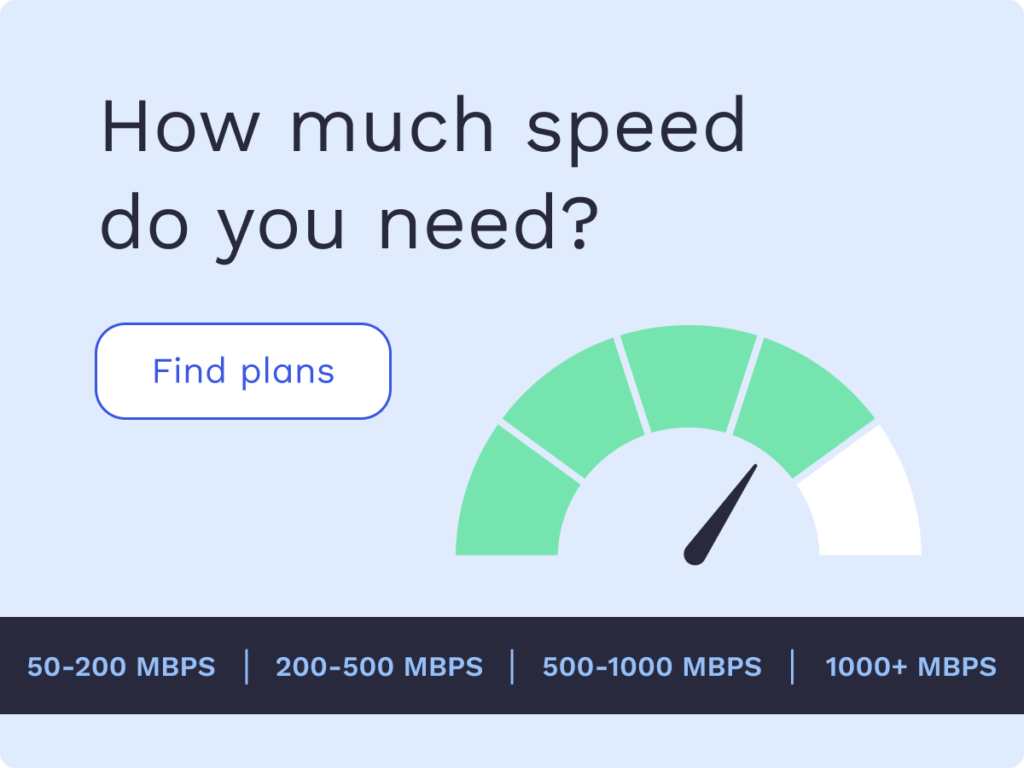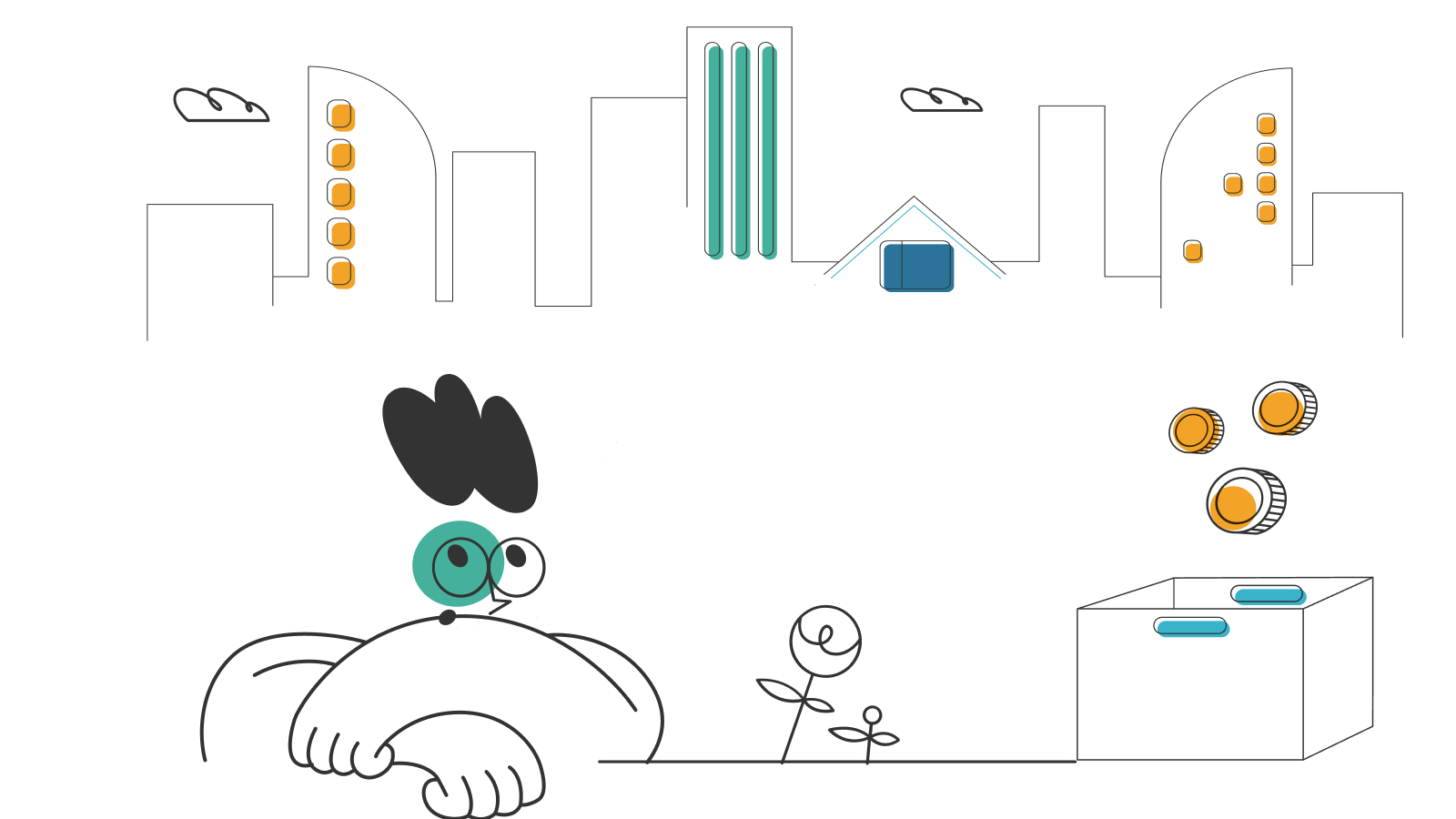Download vs Upload Speed: How Are They Different?

Internet download and upload speeds are often different because your internet service provider (ISP) throttles upload speeds. This enables them to save money because they can cut the cost of providing data while also meeting customer needs, which often don’t include fast upload speeds.
Bandwidth and internet speed are directly connected, with your speeds depending on the amount of bandwidth your ISP makes available. Sometimes, it’s important to have fast speeds for both uploading and downloading, and while this isn’t always the case, it’s a good idea to understand when and why you need quick speeds in both directions, especially as you’re shopping for an ISP.
- Download speed
- Upload speed
- What to know about bandwidth
- Comparing download and upload speeds
- Why are upload speeds slower than download speeds?
- When do you need fast download and upload speeds?
- How to check your internet speed
- Choosing the right speeds for you
Download speed
When considering download vs upload speed, the term “download speed” refers to the speed at which data goes from the internet to your computer. It’s often measured using the following terms:
- Kbps or kilobits per second
- Mbps or megabits per second
- Gbps or gigabits per second
What do download speeds measure?
Suppose there’s a webpage, examplexyz.com, that’s 3 megabytes (MB) in size. That means the page contains 3MB, or 3,000 bytes of data. The page is stored on a web server that either belongs to or is rented by the company or person that owns the domain examplexyz.com. You can think of a web server like a computer that’s ready to send out information to other computers that request it.
When you type “examplexyz.com” in your web browser (such as Chrome or Firefox), a message gets sent from your browser to the web server where the content of examplexyz.com is stored. When that server begins sending the 3MB of data that comprises the page, the download “stopwatch” begins.
Suppose exactly 3 seconds later, all of the data from examplexyz.com’s page has been sent to your computer’s browser. At this point, the download stopwatch stops. Because it took three seconds and the webpage contains 3MB of data, you would say the download speed was 8Mbps. On the other hand, if it took half a second for the information to reach your computer’s browser, your download speed would be 48Mbps.
What is a good download speed?
The amount of speed provided by your ISP is the primary factor when determining your download speed. The faster the speed your internet package has, the more likely you are to get webpages, music or video streams, and other content quickly.
When it comes to modern internet usages, a good download speed is 25Mbps or more. This is the figure the Federal Communications Commission has designated as a baseline for the kind of internet that gives users adequate access to important content. However, you can often use the internet for basic activities, such as videoconferencing, checking email, and even streaming content with less than 25Mbps. For instance, you can videoconference on Zoom with only 1.8Mbps of download speed.
Upload speed
Upload speed refers to the amount of time it takes for your browser to send data to a webpage’s server. Using the example above, suppose you’re submitting a form on examplexyz.com and it’s 3MB in size. This means the data contained in the form takes up 3MB of space. To successfully transfer this to examplexyz.com’s server, it has to use your internet connection, which provides you with a certain amount of upload speed.
If at the moment your computer starts the transfer you have 2Mbps of speed, it will take 4 seconds to get to the web page’s server. If you have 10Mbps, it will take 1.6 seconds and if you have 50Mbps, the form will reach the server in 0.32 seconds.
What is a good upload speed?
According to the FCC, a good upload speed is 3Mbps. So what does this speed mean for you? If you write an email that’s about a full page long, you’re only sending around 2 kilobytes (KB) of text, which is only 2/1000th of a megabyte. That means you could easily send a 500-page document in 2 seconds.
Similarly, if you’re sending a friend an email with an MP3 in it, the file size might be about 5MB. In this case, with 3Mbps of upload speed it would take around 13 seconds to send the MP3 file.
What to know about bandwidth
Bandwidth is the maximum amount of data your internet connection is capable of transferring at any given time. It’s technically measured in either bits per second (bps) or hertz (Hz), but people often use the term bandwidth interchangeably with speed and end up quantifying it using Mbps or Gbps.
To calculate bandwidth, you have to take into consideration the conversion rate of bits to bytes. There are 8 bits in a byte. To use a simple example, this means that if your bandwidth is 1 megabit per second, it would take 8 seconds to transfer a byte of data.
Using the example of the fictional webpage above, examplexyz.com, if your ISP was giving you 3Mbps for your uploading capacity, that would equal 24 megabits/second of bandwidth. However, even though the bandwidth number is different, as long as all of it is available at the moment you start transferring data, it would still take the same amount of time to transfer a 5MB MP3 — a little less than 2 seconds.
Therefore, bandwidth has a direct impact on your internet speed. To put it simply, the lower your bandwidth, the slower your internet is, and the higher your bandwidth, the faster your internet. However, this doesn’t mean bandwidth and speed are the same. At any given moment, bandwidth will always be higher than speed.
Why bandwidth is higher than speed
Bandwidth indicates the maximum amount of data your internet service can handle over a specific period of time. Speed, on the other hand, refers to how long it takes data to go from your computer to the internet. If the only factor were bandwidth, the two would be equal, but there are other factors involved when determining the amount of time it takes a request to go from your computer to the internet:
Latency
This refers to the delays caused by mechanisms that process data and pass it through the internet.
Upload speed
This, as discussed above, is the speed at which something gets sent from your browser to the internet.
Download speed
As described earlier, this is the speed at which data gets downloaded from the internet to your computer.
Bandwidth is always greater than speed because there are several factors impacting latency and speed. Latency and speed do not impact bandwidth. They’re partially determined by other factors. With latency, for instance, if you have a slow internet router and a slow Wi-Fi interface on your device, these will both cause a decrease in the speed at which data gets transferred. If you were to get a computer with a faster Wi-Fi interface, your speeds would improve, both up and down. Similarly, if you bought a router that was capable of routing data quicker, you would decrease latency, and your speed would improve as well.
Other significant factors that make it so bandwidth is always greater than speed include the distance between your device and the server that houses a website’s content and the kind of internet connection you have, such as copper or fiber-optic. While bandwidth can’t change these factors, both bandwidth and these external elements can impact the speeds you get. For instance, if you have a copper connection, your internet speeds may be slower, particularly because it takes longer for a signal to pass through a copper line than a fiber-optic one.
How much bandwidth do you need for your internet speed?
Using the correct bandwidth measurement, you would need a little more than 400 megabits/second of bandwidth to handle 50Mbps of speed. If your ISP says you have “a maximum of 200Mbps of bandwidth,” that means your speed can get close to, but never equal to or higher than, 200Mbps.
Often, the figure your ISP quotes you is an estimate, which is why you can sometimes get speeds even higher than what they say is possible. This isn’t because your ISP suddenly increased the bandwidth they made available to you. It’s simply because factors that could’ve brought down speed either weren’t there or are not as impactful as the ISP had anticipated.
Comparing download and upload speeds
Download and upload speeds can be significantly different if you have a copper wired connection, but they can be close to each other with a fiber-optic connection. Here are the fastest download and upload speeds from some of the major internet providers:
Why are upload speeds slower than download speeds?
Upload speeds tend to be slower than download speeds because ISPs throttle the speed they make available for uploading data. The first step in understanding why upload speeds are slower than download speeds is to understand how internet data travels.
How does internet data travel?
When your internet provider takes data from a web server and sends it to your computer’s browser, or when it takes data from your computer and sends it to a web server, the information is sent using thousands of millions of digital pulses. The device that’s receiving the information has a mechanism that reads these pulses and turns them into something the computer can understand.
These pulses need to travel through a line, and currently, there are two options for the type of pulse: electricity and light. There are several options for the kind of line, but they boil down to two basic categories: copper and fiber-optic. Copper transmits electrical pulses, and fiber-optic cable transmits pulses of light.
It takes energy to process and generate these millions of pulses, and the amount of energy it takes goes up the faster your ISP wants the data to travel. With a fiber-optic cable, it takes less energy to transmit each pulse at the desired speed. This is because fiber-optic cables simply bounce light off their inside walls. So an ISP can easily send a signal through fiber-optic cables without latency created by the pulse traveling through the cable.
On the other hand, as an electrical pulse travels through copper, it slows down. This is because copper depends on conductivity. To ensure the data travels at a certain speed when moving through copper wires, your ISP has to invest considerably more energy in processing and sending it. However, if it throttles the amount of data that it sends from uploads, the company can serve more people with a smaller investment in infrastructure.
When do you need fast download and upload speeds?
You may need faster upload speeds, when you’re gaming online or sending large files to someone else over the internet. A fiber-optic connection can help you achieve the speeds you need for these activities and plenty of others.
Similarly, anytime you have to download or stream big files or many data packets over a short period of time, you may need fast download speeds. For example, when you’re streaming high-definition content or receiving big documents through a live chat feature, a higher download speed can make a significant difference.
How to check your internet speed
You can check your internet speed for free using a site such as Measurement Lab. After connecting to the site, you simply tap or click an icon and in a few moments, you get data about how fast your internet is, both for uploads and downloads.
Choosing the right speeds for you
To choose the right speeds for you, you can figure out how many users you’re likely to have on your network at once and the kinds of online activity they’ll be using it for. If you only have one or two online gamers in your household, and only two or three people watching movies online at the same time, you may do well with significantly less speed than families that have several gamers and high-def streamers. If your ISP advertises bandwidth instead of speed, remember that it needs to be a little higher than the speed you feel you need.
Regardless of what you see advertised, it may be helpful to remember that the speeds you actually get will likely vary, so it may be best to overestimate how much speed you need.
Interested in a new Internet plan?
Enter your address to find out what providers and plans are available to you
*Pricing varies by location and availability. Speeds may vary. All prices subject to change; for current pricing and availability visit our internet service page. Prices as of 3/22/22.
Disclosure | Updater articles are based on our own data and research, independent from partner relationships. We are not compensated by partners for information and opinions presented here. Our Editorial Terms of Service can be found here.














